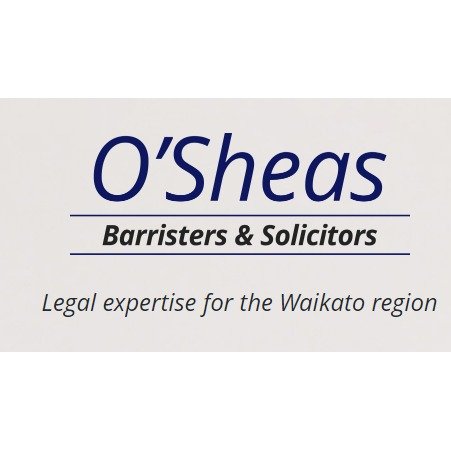Best Marriage Lawyers in Hamilton
Share your needs with us, get contacted by law firms.
Free. Takes 2 min.
Free Guide to Hiring a Family Lawyer
List of the best lawyers in Hamilton, New Zealand
About Marriage Law in Hamilton, New Zealand
Marriage in Hamilton, New Zealand, like the rest of the country, is governed by the Marriage Act of 1955 and the Civil Union Act of 2004. These laws stipulate the age of consent, the processes for obtaining marriage licenses, and the legal requirements for solemnising a marriage. Both same-sex and different-sex marriages are legal and acknowledged in New Zealand.
Why You May Need a Lawyer
Having a lawyer when you’re dealing with marriage-related issues can be helpful in many situations. These can include preparing prenuptial agreements, understanding your rights and obligations during a divorce, settling property disputes, and child custody matters. Furthermore, if your marriage involves complex international elements or disputes, having a lawyer can ensure everything is done correctly and legally.
Local Laws Overview
In relation to marriage in Hamilton, New Zealand, it is important to note that anyone aged 16 or over can get married, but those under the age of 18 require legal consent. Both civil and religious marriages are acknowledged and can be arranged through a registered marriage celebrant. Additionally, New Zealand legally recognizes both same-sex and different-sex marriages.
Frequently Asked Questions
What are the legal benefits of getting married in New Zealand?
Legally, marriage affects many areas from shared property rights and tax benefits to inheritance rights and decision-making powers in health and financial matters. It also offers certain advantages in terms of immigration status, should one partner be from overseas.
What is a prenuptial agreement and when should I consider one?
A prenuptial agreement, also known as a prenup, is a legally binding contract created by a couple before they get married. This document outlines how assets and liabilities will be divided in the event of divorce, separation, or death. It's often considered by those who have substantial assets or children from previous relationships.
Can I get married in Hamilton if I am not a resident of New Zealand?
Yes, New Zealand allows foreigners to get married within its jurisdiction. However, it requires submission of specific documents to the Registrar of Marriages and may require additional paperwork in your country of origin to recognize the marriage.
How can I get a divorce in Hamilton?
In New Zealand, you can apply for a divorce if you have been separated for two years or more. This process can be done jointly or individually and may require you to go through the Family Court.
What is a marriage celebrant and how can they help?
A marriage celebrant is a person who is authorised by the government to perform marriages. They can help by ensuring that your wedding service meets all legal requirements and registering your marriage with the Registrar once it's completed.
Additional Resources
You may find it helpful to refer to government websites such as New Zealand's Department of Internal Affairs or the Courts of New Zealand website for further information. Local law societies or citizen advice bureaus can also guide you in discovering more about your legal rights and responsibilities concerning marriage.
Next Steps
If you need legal assistance with your marriage-related matter, you should consider seeking advice from a legal professional specializing in family law. This might involve making an appointment for an initial consultation, in which you can discuss your situation and explore possible legal options.
Lawzana helps you find the best lawyers and law firms in Hamilton through a curated and pre-screened list of qualified legal professionals. Our platform offers rankings and detailed profiles of attorneys and law firms, allowing you to compare based on practice areas, including Marriage, experience, and client feedback.
Each profile includes a description of the firm's areas of practice, client reviews, team members and partners, year of establishment, spoken languages, office locations, contact information, social media presence, and any published articles or resources. Most firms on our platform speak English and are experienced in both local and international legal matters.
Get a quote from top-rated law firms in Hamilton, New Zealand — quickly, securely, and without unnecessary hassle.
Disclaimer:
The information provided on this page is for general informational purposes only and does not constitute legal advice. While we strive to ensure the accuracy and relevance of the content, legal information may change over time, and interpretations of the law can vary. You should always consult with a qualified legal professional for advice specific to your situation.
We disclaim all liability for actions taken or not taken based on the content of this page. If you believe any information is incorrect or outdated, please contact us, and we will review and update it where appropriate.















